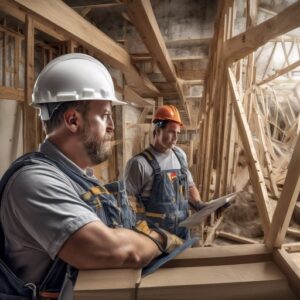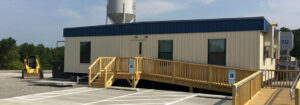The construction industry thrives on efficiency, precision, and timely execution of projects. Among the many vital tools in construction, cranes stand tall, quite literally, facilitating the lifting and movement of heavy materials with ease. However, not every construction company or project necessitates owning a crane outright. This is where crane rental services come into play, offering a cost-effective solution without the burden of ownership.
But how does one go about finding the perfect crane rental service nearby? In this comprehensive guide, we’ll delve into the intricacies of locating a crane rental service in your vicinity. From understanding your project requirements to evaluating rental options, we’ll cover everything you need to know to make an informed decision.
Understanding Your Project Requirements
Before embarking on your search for a crane rental service, it’s imperative to assess your project’s specific requirements. Consider the following factors:
Type of Project: Is your project residential, commercial, industrial, or infrastructure-related? The type of construction project will dictate the size and type of crane needed.
Scope of Work: Determine the scope of lifting tasks involved. This includes the weight and dimensions of materials to be lifted, as well as the height and reach required.
Site Conditions: Assess the terrain, ground conditions, and space availability at the construction site. Factors like uneven terrain or limited space may influence the type of crane suitable for the job.
Timeline: Consider the project timeline and duration of crane usage. Will you need the crane for a few days, weeks, or months? This will help in negotiating rental terms and costs.
Researching Crane Rental Services
With a clear understanding of your project requirements, it’s time to begin your search for crane rental services. Here’s how you can effectively research and narrow down your options:
Online Search: Start by conducting a comprehensive online search for crane rental companies in your area. Use search engines and online directories to compile a list of potential rental services.
Reviews and Recommendations: Seek out reviews and testimonials from previous clients to gauge the reputation and reliability of each rental service. Additionally, ask for recommendations from colleagues, contractors, or industry professionals who have utilized crane rental services in the past.
Verify Credentials: Ensure that the crane rental companies on your list are properly licensed, insured, and compliant with safety regulations. Look for certifications such as the Crane Rental Association of America (CRA) accreditation, which signifies adherence to industry standards.
Evaluate Fleet and Equipment: Assess the range and condition of cranes available for rent from each service provider. Consider factors such as crane capacity, boom length, mobility, and specialized attachments or features that may be required for your project.
Compare Pricing and Terms: Request quotes from multiple crane rental companies and compare pricing, rental terms, and additional fees such as transportation, setup, and operator costs. Be wary of overly low prices that may indicate subpar equipment or service quality.
Contacting and Consulting Rental Providers
Once you’ve narrowed down your list of potential crane rental services, it’s time to reach out and engage with each provider:
Schedule Site Visits: Arrange site visits or consultations with representatives from each rental company to discuss your project requirements in detail. This allows the rental provider to assess the site conditions firsthand and recommend the most suitable crane solution.
Ask Questions: Don’t hesitate to ask questions regarding equipment specifications, maintenance protocols, safety measures, and operator qualifications. A reputable rental company will be transparent and forthcoming with information to address your concerns.
Negotiate Rental Terms: Use the information gathered from your research and consultations to negotiate favorable rental terms, including pricing, duration, delivery schedules, and any additional services required.
Review Contracts Thoroughly: Before finalizing any agreements, carefully review the rental contract and ensure that all terms and conditions are clearly outlined and understood. Pay particular attention to clauses regarding liability, insurance coverage, and dispute resolution.
Conclusion
Finding a crane rental near me may seem like a daunting task, but with careful planning, research, and consultation, you can identify the right provider to meet your project needs. By understanding your requirements, conducting thorough research, and engaging with rental providers effectively, you can secure a reliable and cost-effective crane rental solution for your construction project.
Remember, the key to a successful crane rental experience lies in communication, transparency, and adherence to safety standards. With the right rental partner by your side, you can elevate your construction endeavors to new heights, quite literally. So, go ahead, unlock the secrets of finding a crane rental near you, and watch your project soar to success.




